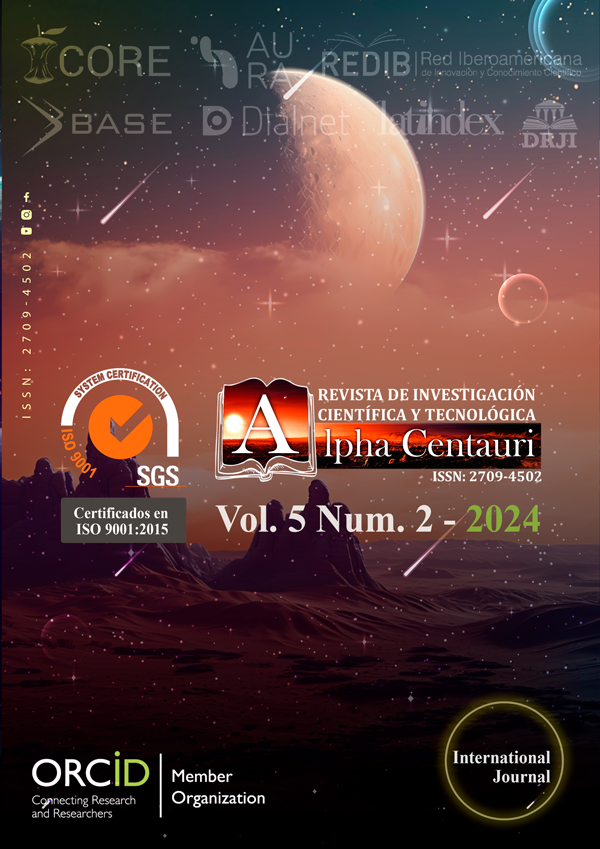Abstract
The purpose of this article is to examine the academic training of Peruvian judges and how this influences the administration of justice in the country. To achieve this objective, a methodology was used that included the review of specialized literature, analysis of statistical data on the academic training of judges in Peru.
The research reveals that the academic training of Peruvian judges is varied and, in some cases, insufficient to face the challenges of the judicial system. The lack of specific training in key areas such as procedural law, criminal law and human rights is reflected in the quality of judicial decisions and in the population's perception of justice in the country.
In conclusion, the creation of a School of Judges in Peru is proposed that provides comprehensive and specialized training to aspiring judges, as well as continuing training programs for practicing judges. This school would not only guarantee the adequate preparation of judges to perform their duties effectively, but would also contribute to improving the quality and legitimacy of the Peruvian judicial system, thus strengthening the rule of law and democracy in the country.
References
Andreeva, A., & Dimitrova, D. (2023). Contemporary aspects of judicial Administration training in the context of the digitalization of the educational process. Strategii na obrazovatelnata i nau?nata politika, 31(2), 136. https://doi.org/10.53656/str2023-2-2-con
Armytage, L. (2005). Training of Judges: reflections on principle and international practice. European Journal of Legal Education, 2(1), 21-38. https://doi.org/10.1080/16841360508522935
Atienza, M. (1998). Virtudes judiciales: selección y formación de los jueces en el estado de derecho.
Auger, C. (1985). La formación y selección del personal judicial.
Basabe?Serrano, S. (2013). Explicando la corrupción judicial en las cortes intermedias e inferiores de Chile, Perú y Ecuador. Perfiles Latinoamericanos, 21(42), 79-108. https://doi.org/10.18504/pl2142-079-2013
Burdina, E. V., & Alexandrov, S. V. (2022). Modern trends in further professional education of judges: Russian and foreign experience. Integration of Education, 26(4), 771-786. https://doi.org/10.15507/1991-9468.109.026.202204.771-786
Cardinaux, N., & Clérico, L. (Eds.). (2020). Formación de jueces: su adecuación a un modelo de sociedad igualitaria.
Fleming, S., Pretty, C. (2019). Research Instruments Micromanipulation Systems. In: Nagy, Z., Varghese, A., Agarwal, A. (eds) In Vitro Fertilization. Springer, Cham. https://doi.org/10.1007/978-3-319-43011-9_36
Goldbach, T. S. (2016). From the Court to the classroom: Judges’ work in international Judicial education. Scholarship@Cornell Law: A Digital Repository.
Jiménez, O. P., Gómez, A. A., & Huaman, M. S. M. (2022). La formación académica de los jueces supremos del Perú en 2022. Revista Pedagogía Universitaria y Didáctica del Derecho, 9(2), 223-238. https://doi.org/10.5354/0719-5885.2022.67769
Linares, J. (2022). La formación académica de los jueces supremos del Perú en 2022. Revista de Pedagogía del Derecho, 15(2). file:///C:/Users/Harry%20Paz/Downloads/pezo+(1)%20(3).pdf
Oberoi, G. (2022). Why judicial education institutions (JEI) must focus vulnerabilities faced on account of age, economic status, sexual orientation and participation in civil society movements? Athens journal of law, 8(3), 217-236. https://doi.org/10.30958/ajl.8-3-1
Robles, O Elmer (2006) “Origen de las Universidades más antiguas del Perú”, en Revista Historia de la Educación Latinoamericana, Tunja, UPTC. RUDECOLOMBIA. No. 8, pp. 35-48; ISSN: 0122-7238.
Sciberras, M., Dingli, A. (2023). Investigación cuantitativa. En: Investigación de la preparación para la IA en la administración pública maltesa. Apuntes de conferencias sobre redes y sistemas, vol 568. Springer, Cham. https://doi.org/10.1007/978-3-031-19900-4_11
Sierra, F. (2015). La educación en derechos humanos y la labor educativa de los jueces en el Poder Judicial de la Federación.
Wilenmann, J. (2011). La administración de justicia como un bien jurídico. Revista de derecho, 36, 531-573. https://doi.org/10.4067/s0718-68512011000100015
Zamorano, M. A. M., Miranda, V. M. V., & Villaescusa, R. R. (2020). Derecho a una educación de calidad, formación de juristas como práctica docente. Biolex, 12(23 jul-dic), 107-126. https://doi.org/10.36796/biolex.v0i23.192

This work is licensed under a Creative Commons Attribution 4.0 International License.
Copyright (c) 2024 Leonel Harry Paz Delgado


